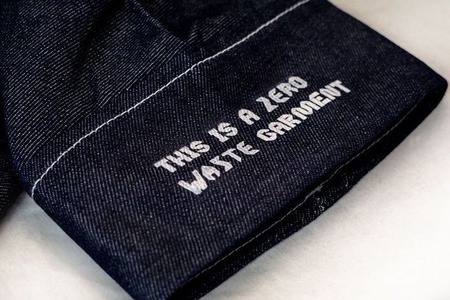
FTC, Haelixa partner to promote transparent supply chain
YarnsandFibers News Bureau 2023-07-07 17:06:43 – SwitzerlandSwiss cashmere organization FTC, which has collaborated with Haelixa beginning around 2020, is a luxury case study for physical verification. The company wanted verification from a third party, even though it was already aware that its cashmere came from its own vertically integrated goat farms.
Before dyeing, FTC Cashmere applies Haelixa's DNA markers directly to the raw material; however, the procedure can also be carried out later in the supply chain. The sprayer device made by Haelixa is designed to add DNA markers to fibers. The markers and spray do not change the fibers in any way because they are applied under very low humidity. The sprayer is just one part of a comprehensive solution package. The markers are vegetarian, non-GMO and innocuous, and are not recognizable to the unaided eye.
Haelixa uses PCR testing to determine whether marked fibers are present by extracting DNA from a stakeholder-provided sample. Our clients receive a forensic result from this testing. The yes/no report can then be imported into any CRM, ERP, import/export document, or other data system, according to Berger.
The need for traceability has increased as a result of recent UFLPA restrictions, shipment confiscations, rising consumer pressure, and the impending EU Digital Product Passport (DPP). However, not all solutions are created equal.
"Actual detectability is the string that meshes straightforwardness into the fiber-to-item store network. It unwinds the story behind each strand, uncovering the beginning, excursion and change of every fiber," said Holly Berger, showcasing overseer of Swiss actual recognizability arrangements organization Haelixa, which conveys actual DNA markers and has collaborated with everybody from Soorty Denim to Damtex Materials to Rieter Machines. " The most secure method for establishing physical traceability and validating ingredient claims is forensic testing.
Berger points out that there are potential gaps and risks to a "digital fingerprint" that is not physically attached to the materials, despite the fact that DPP regulations aim to create more consistent visibility into the supply chains, which is an important step toward encouraging the traceability of raw materials. There is the gamble that bunches or steps may be skipped; She stated, "It is impossible to know if the information is 100% accurate." This is where coordinated effort inside the recognizability local area becomes significant. The risks in the supply chain will significantly decrease only when physical traceability solutions are used to mark the physical materials and that information is uploaded to a digital solution.
The markers behave like a key-lock framework, where except if you understand what DNA to search for on the example, you won't know whether it is stamped. The manufacturer or brand gains an additional layer of protection by knowing that their markers cannot be duplicated or altered.
Knezovic of FTC Cashmere stated, "Transparency is really the key to sustainability for us." Haelixa helps us make the otherwise invisible visible to our customers so that our value chain is truly transparent.
Market Intelligence
Ask for free sample Report

experience
Customer Base
dedicated team
Countries Served Worldwide







![Freitag unveils new Mono[P6] circular backpack](https://www.yarnsandfibers.com/wp-content/uploads/2024/04/Freitag.jpg)

